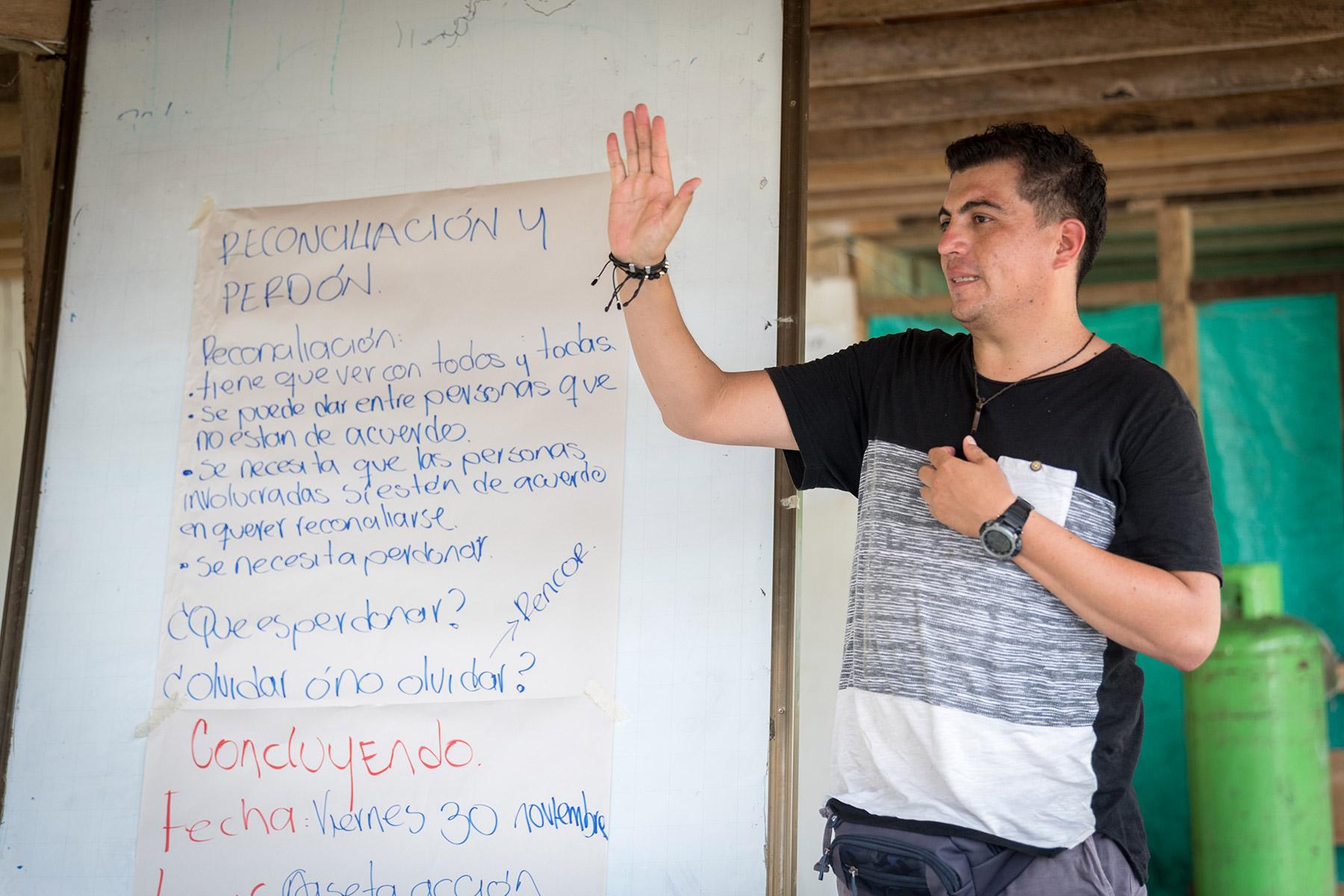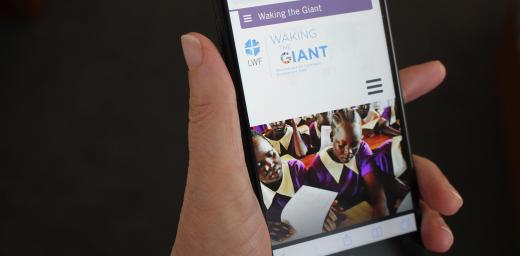Churches are key partners for UN’s 2030 Agenda

Edwin Mosquera leads a workshop on forgiveness and reconciliation as part of the âFrom War to Peaceâ project of the Evangelical Lutheran Church in Colombia which supports three communities in the northwest Antioquia region. Photo: LWF/A. Hillert
During High-Level Political Forum, LWF to launch reports on progress towards SDGs in Colombia, Indonesia, Namibia
(LWI) - The Lutheran World Federation (LWF) has joined with Christian churches and faith-based organizations to urge the international community to work towards a more just and equitable recovery from the COVID-19 pandemic. The call comes in a joint statement to the High-Level Political Forum (HLPF), the main UN platform for follow up of the 2030 Agenda for Sustainable Development.
The Forum, which opens on 6 July, is being held under the auspices of the UN’s Economic and Social Council, focusing on sustainable and resilient recovery from the COVID-19 pandemic. It will discuss progress being made towards many of the 17 Sustainable Development Goals (SDGs), as well as considering the urgent question of how to put the world “back on track” to achieve them all by the target year of 2030.
In their statement, the churches say they are “critical partners for governments and multilateral institutions” since their networks extend into some of the most remote areas that are often out of the institutional reach of national and local governments.
They call on the international community to take measures to ensure that “no-one is left behind” in the recovery from the global pandemic. These include providing resources for public health and social protection for those who have lost their livelihoods, cancelling the external debts of low and middle-income countries, increasing investments in community health care and resilience building, financing climate mitigation and adaptation and ensuring that all COVID-19 response and recovery plans are gender sensitive.
Progress on climate action, justice and peace
Towards the end of the 10-day Forum, the LWF will be launching three shadow reports that will feed into the annual UN review on how well countries are moving towards achieving the SDGs. As part of the follow-up to the 2030 Agenda, UN member states are encouraged to conduct a regular review of progress towards the SDGs, known as voluntary national reviews (VNRs). As well as seeking accountability from governments, these also aim to mobilize multi-stakeholder partnerships to improve a country’s performance.
During the 14 July event, LWF will present shadow reports for the VNR process, highlighting work towards SDG13 (on climate action) and SDG16 (on peace, justice and strong institutions) in Colombia, Indonesia and Namibia. Members of Lutheran churches in those countries will showcase key findings from their analysis of the status of the two SDGs and share best practices that have already been implemented. Together with local faith-based partners, LWF churches will present key recommendation for making progress towards the targets outlined in goals 13 and 16.
Since 2017, the LWF has been working through an ecumenical initiative called Waking the Giant to link the diaconal work of its 148 member churches to the UN’s 2030 Agenda. Through a series of training materials and self-assessment tools, churches are able to evaluate the impact of the work they already do in education, healthcare, conflict resolution, sustainable development, environmental protection or poverty reduction and to reflect on possible partnerships that could further amplify that impact.
No time to lose
The Evangelical Lutheran Church of Colombia was one of the first churches to implement the Waking the Giant initiative, working with the government and other Christian churches to strengthen peace building and reconciliation programs in the wake of the country’s decades-long civil war.
The LWF National Committee in Indonesia has been active at national level working on key sustainable development and human rights issues such as peace, freedom of religion and belief, interfaith dialogue and action, as well as responding to the basic needs of the most vulnerable communities in the country.
The Evangelical Lutheran Church in the Republic of Namibia, together with other churches and civil society organizations, has been working on a range of development issues including gender justice, economic justice, poverty alleviation and land reform, as well as the rights of indigenous peoples.
The international community must find ways to invest in and collaborate even more with faith actors.
LWF’s Head of Global Advocacy in the Department for Theology, Mission and Justice, Isaiah Toroitich, said: “This year’s Forum must make decisive steps towards a just and equitable recovery from Covid-19 pandemic without forgetting that the most vulnerable people and communities are already overburdened by the climate crisis and conflict, violence and fragility. There is no time to lose – otherwise we shall fail to meet the 2030 target.”
He added: “Churches and other faith actors bring a unique contribution to the Agenda 2030 – their long history of serving the most vulnerable and being rooted in local levels all across the world gives then an added credibility. The international community must find ways to invest in and collaborate even more with faith actors.”
LWF/P. Hitchen





